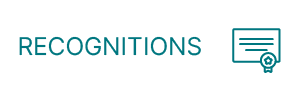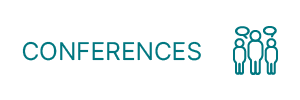In 2018, with the passage of House Bill 128, Kentucky joined over a dozen states in the United States that officially mandated the teaching of the Holocaust and other genocides. The Ann Klein and Fred Gross Holocaust Education Act stated that, “Every public middle and high school’s curriculum shall include instruction on the Holocaust and other cases of genocide, as defined by the United Nations Convention on the Prevention and Punishment of the Crime of Genocide, that a court of competent jurisdiction, whether a court in the United States or the International Court of Justice, has determined to have been committed by applying rigorous standards of due process.”
Although the legislation is relatively new, the desire to teach the Holocaust within Kentucky schools is not. The organization I work for, Echoes & Reflections, has worked with Kentucky educators since our founding in 2005, and we know that efforts to teach this topic long pre-date our founding. Still, this is a complex subject and many educators we have spoken with express concern over how to teach this topic effectively, especially those in courses who have short time frames in which to tackle this hard history.
Organizations such as Echoes & Reflections are here to assist educators. As a partnership between the ADL, USC Shoah Foundation and Yad Vashem, we provide resources that are not only immediately ready for classroom use but that are also accompanied by training to help educators feel comfortable utilizing them and adapting them to their own classrooms.
Our resources are wide-ranging in the way they can help to meet educators’ needs in Kentucky. For example, those teaching Grade 8: The United States: 1600-1877 encounter the topic of injustices against American Indians. Our definition of genocide can be using in conjunction with our Pyramid of Hate to examine whether or not the act of genocide was committed during Westward Expansion. This helps to infuse standards 8.I.CC.1 and 8.I.CC.2 in exploring developing perspectives on this time period while also discussing important themes within the Continuity and Change Disciplinary Concepts and Practices from history.
At the high school level, discussion of the Holocaust and other genocides can occur in multiple places. One of the most frequent ways United States History teachers infuse content on the Holocaust is in conjunction with World War II. Our newly released Unit 6: Liberation provides lesson plans built upon inquiry-based approaches to help students not only get a glimpse into the horrors of the Holocaust but also to consider its impact on American soldiers, including African American soldiers in segregated units. The lessons are structured in a way that invites students to consider compelling questions and a variety of primary and secondary sources to explore this aspect of US and Holocaust history.
Kentucky’s approach to World History also invites multiple points of entry into this topic area. Our Unit 2: Antisemitism resources allow educators to explore “the longest hatred” throughout time – bringing in connections from earlier centuries to help students explore the manifestation of antisemitism during the interwar period and World War II. Unit 1: Studying the Holocaust not only provides scaffolding for students to understand why we study the Holocaust but it also adds to their understanding of interwar Jewish life to illustrate the rich histories and experiences that were lost during the Holocaust. Additional units allow educators to share aspects of the Rise of the Nazi Party and the escalation of the Holocaust in the ghettos and during the “Final Solution” with effectively vetted resources and approaches.
Unfortunately, despite our best efforts as educators and as a world community – genocide did not end with the Holocaust. In fact, it is important for students to know that it both predated this catastrophic era and continues until present day. Our partners at the USC Shoah Foundation have an outstanding digital platform, IWitness, that exposes students to a multitude of testimonies from genocides such as those perpetrated in Armenia, Cambodia, Rwanda, Bosnia, and even the present-day genocide against the Rohingya in Burma. On our side specifically, we have a Teaching About Genocide resource for educators to learn more about teaching the framework scholars use to educate about genocide – the 10 Stages of Genocide.
Beyond our educator resources for the classroom, we are also happy to support Kentucky students through yearly webinars and support geared towards National History Day. Throughout the year, we also offer webinars for students and educators to attend and learn together.
Lastly, no offer of support would be complete without information on our professional learning opportunities. Echoes offers multiple learning opportunities for secondary educators – from single day, in-person workshops to online sessions and webinars and multi-week online courses. Our points of focus include various topics within the Holocaust, Teaching the Holocaust with Night, The Refugee Crisis: Connecting Past to Present; Choices Matter: Complicity and Action During the Holocaust; Analyzing Propaganda and Media Literacy – The Holocaust as a Case Study and a Spotlight on Contemporary Antisemitism. More information about these offerings is available here – and the best part of all of this, is that it is FREE!
In closing, my favorite part of my job is continuing to work with my educator colleagues – as a lifelong equestrian, I have a spot in my heart for Kentucky and I’d love to connect with and assist you. Please feel free to reach out at any time whether you need a resource suggestion, support or wish to schedule a program. I look forward to working with you!
Jennifer L. Goss is a Program Manager for Echoes and Reflections. She spent 19 years teaching Social Studies and currently works with educators nationwide to help instill confidence and capacity to teach about the Holocaust and other genocides.




Leave A Comment